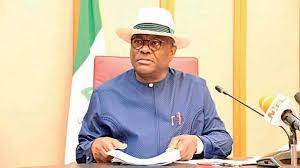By Ezrel Tabiowo
Abuja
The Senate Committee on Gas Resources has said that “Nigeria needs over $30 billion for the production of gas,” an amount which would be needed for the provision of infrastructure to meet the country’s target of producing 3 to 4 billion cubic feet of gas a day by 2015.
Chairman of the committee, Senator Nkechi Nwogu, who disclosed this yesterday during an address on the occasion of a three-day National Conference on Gas Resources, said “Nigeria will require huge investments from local and international communities given that government cannot on its own undertake funding of the country’s gas master plan.”
Such investments, the lawmaker noted, would be channelled towards the provision of human-capital, finance and technological innovation.
She said: “In the case of Nigeria, an increased use of cooking gas will lead to huge savings in billions of dollars on subsidy and safeguard the Nigerian currency from further devaluation due to reduction or possibly complete stoppage of importation of petroleum products. The use of natural gas has additional advantage to helping cut down greenhouse gas emissions which contributes greatly to global warming and constitutes a threat to human and societal growth and environmental degradation.”
She added: “In achieving these bold aspirations, the senate committee on gas resources is of the view that Nigeria will require huge investments from local and international communities in human-capital, finance and technological innovation. For instance, a significant investment of over $30 billion on infrastructure is needed to achieve Nigeria’s target of producing 3 to 4 billion cubic feet of gas a day by 2015, and is unlikely to be achieved by government alone.”
President of the Senate, David Mark, in his speech read by the Minority Whip, Abu Ibrahim, to declare open the conference, said the gas revolution was not just mainly about hydrocarbons and wealth, but the betterment of people, communities and the entire society.
He said: “Nigeria needs to explore the varying opportunities of this revolution and chart a sustainable way forward for the development of our people. The revolution does not only engender the creation of new jobs, but also serves as a springboard for the rebirth of the non-oil sector in our country, such as manufacturing, agriculture, solid minerals, and so on.”



